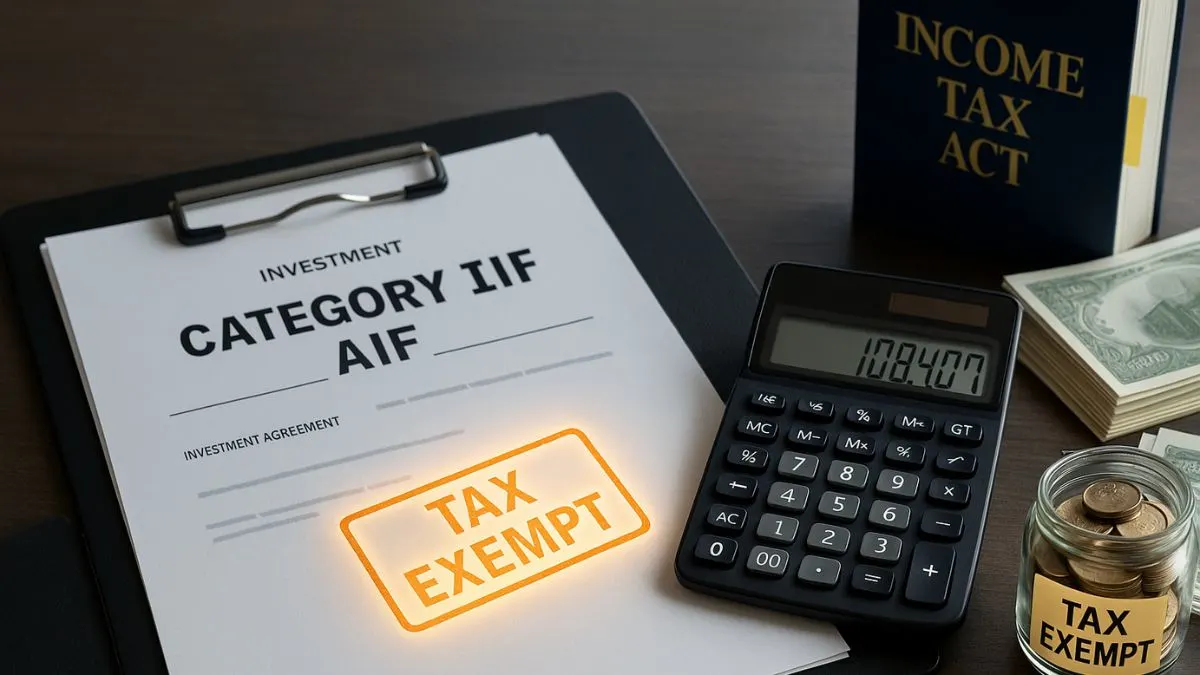
In recent years, India has become one of the fastest-growing destinations for global investors. The government has made continuous efforts to ensure that international funds and domestic Alternative Investment Funds (AIFs) operate in a tax-friendly environment. One such provision is Section 10(4D) of the Income Tax Act, which provides special exemptions to specified funds.
This section plays a crucial role in preventing double taxation & ensuring that funds managed from India can remain globally competitive. In simple words, any income accrued or arisen to, or received by a specified fund is eligible for exemption, provided certain conditions are met.
Let’s dive deeper into its meaning, scope, conditions, and how businesses and investors can benefit from it.
What is Section 10(4D) of the Income Tax Act?
Section 10(4D) was introduced to provide relief to specified funds, especially Category III Alternative Investment Funds (AIFs) registered with SEBI. The section ensures that certain categories of income earned by such funds are exempt from tax in India.
It specifically provides for an exemption from tax for specified funds, covering:
- Income from securities (like dividends, interest, or capital gains).
- Certain specified transactions carried out by these funds.
- Income accrued or received outside India but routed through the fund.
This provision not only eases compliance but also ensures that fund investors are not taxed twice—once in India & again in their home country.
Did you know? A small compliance miss in Category III AIF reporting can erase your tax advantage — and even trigger penalties. 👉 Click here
Objective Behind Section 10(4D)
The government recognized that specified funds—particularly those attracting global investors—were facing challenges due to overlapping tax obligations. Section 10(4D) was introduced with the following objectives:
- To encourage foreign capital inflows into India.
- To provide certainty and transparency in the taxation of specified funds.
- To prevent double taxation for global investors investing through AIFs.
- To establish India as a competitive jurisdiction for global fund management.
In essence, it provides an exemption for certain income received by a specified fund, thereby reducing the overall tax burden.
Also Read: Taxation of Alternative Investment Funds (AIFs)
Who Qualifies as a Specified Fund?
A specified fund under Section 10(4D) typically refers to:
- Category III AIFs regulated under SEBI,
- Funds located in International Financial Services Centres (IFSCs),
- Funds meeting prescribed conditions notified by the government.
Thus, only recognized & regulated investment vehicles can enjoy this exemption.
Types of Income Exempted Under Section 10(4D)
The section provides exemption to the specified funds in respect of certain specified income, including:
- Capital Gains – Profits arising from the transfer of securities.
- Interest Income – Interest received from securities or deposits linked to fund activities.
- Dividend Income – Dividends distributed by companies in which funds are invested.
- Other Notified Incomes – As prescribed by the government from time to time.
This ensures that any income accrued or arisen to, or received by a specified fund from these sources is free from Indian tax liabilities.
Example to Understand Better
Suppose an offshore investor invests in a SEBI-registered AIF located in an IFSC. The AIF earns ₹100 crore in capital gains from trading listed securities in India. Normally, such gains would be taxable in India. But thanks to Section 10(4D), this income is exempt from taxation at the fund level, making the structure more attractive for investors.
Interaction with Other Provisions
While Section 10(4D) provides broad exemptions, it must be read with:
- Section 115UB – Which deals with taxation of income of AIFs.
- DTAA Agreements – Double Taxation Avoidance Agreements ensure relief for cross-border investors.
- SEBI Guidelines – Compliance with AIF regulations is mandatory to enjoy exemptions.
Here’s what most investors miss: not all income in Category III AIFs qualifies for exemption. The fine print decides whether your return stays tax-free. 👉 Click here
Benefits of Section 10(4D)
- Boosts Fund Industry – Makes India a hub for fund management.
- Protects Investors – Ensures investors are not taxed unfairly.
- Prevents Double Taxation – Income taxed abroad need not be taxed again in India.
- Encourages Transparency – Clear guidelines reduce disputes with tax authorities.
Challenges in Implementation
Despite its advantages, Section 10(4D) faces certain challenges:
- Compliance requirements with SEBI & tax authorities.
- Complex documentation to prove eligibility as a specified fund."
- Dependence on government notifications for updated exemptions.
However, these challenges can be overcome with expert tax planning.
Case Laws and Practical Guidance
Although Section 10(4D) is relatively new, the principles of exemption for specified funds are in line with global practices. Judicial interpretation is still evolving, but courts are likely to favor clarity & investor protection in line with government policy.
FAQs
Q1. What is the main benefit of Section 10(4D)?
It provides tax exemption for certain incomes earned by specified funds, reducing tax burden and preventing double taxation.
Q2. Can all AIFs claim exemption?
No. Only specified funds like Category III AIFs & those in IFSCs are eligible.
Q3. Is proof of exemption required?
Yes. Funds must maintain records of transactions and confirm compliance with SEBI and Income Tax rules.
Also Read: Understanding MAT Credit for Businesses
Conclusion
Section 10(4D) of the Income Tax Act is a powerful provision that makes India more attractive for global investors. By exempting any income accrued or arisen to, or received by a specified fund, it ensures fairness & prevents double taxation. This clarity not only supports fund houses but also boosts confidence among investors who wish to channel their money into India’s growth story.
👉 Want to know whether your investment fund qualifies for exemptions under Section 10(4D)? At Callmyca.com, our team of Chartered Accountants can help you decode the rules, maximize your tax savings, and stay compliant. Don’t miss out on tax benefits—consult our experts today!











